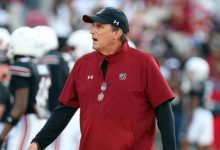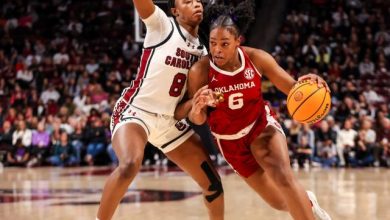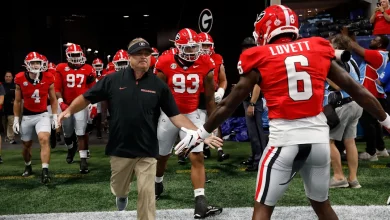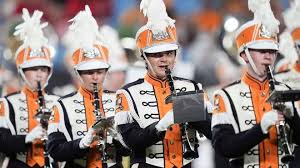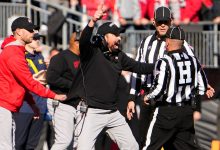Michael Earley Reflects on Disappointing Season for Texas A&M Aggies Baseball
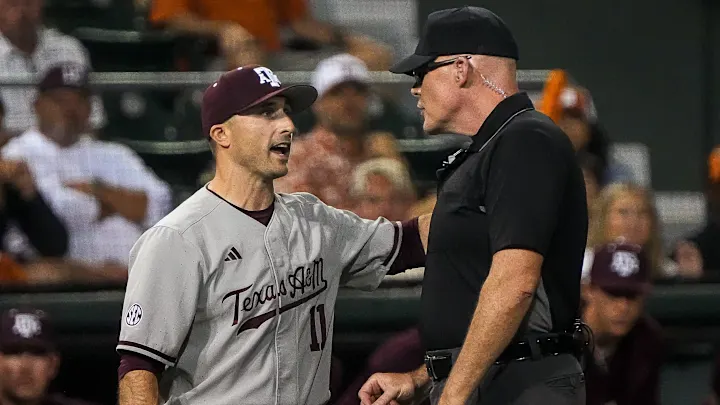
The 2025 college baseball season didn’t go as planned for the Texas A&M Aggies. Despite early expectations and a talented roster, the Aggies failed to make a significant postseason run, leaving fans and players disappointed. At the heart of the team’s reflection process is head coach Michael Earley, who took the reins with optimism, ambition, and the promise of building a competitive program. Now, with the season behind him, Earley is candid about what went wrong—and what must change moving forward.
In a recent press conference and follow-up interviews, Earley offered an honest assessment of Texas A&M’s performance, leadership challenges, player development issues, and his own learning curve as a relatively new head coach. His words were less about excuses and more about accountability, growth, and the long-term vision for the program.
High Expectations, Early Promise
Coming into the 2025 season, the Aggies were viewed as a potential contender in the SEC—a league that has set the national standard for college baseball. The roster included returning veterans, promising underclassmen, and a few high-profile transfers. With solid pitching depth and explosive offensive tools, many expected the Aggies to be in the thick of the SEC title race.
“We felt like we had the pieces,” Earley said. “There was chemistry in the locker room early on. We had leaders who had been through the grind. But somewhere along the way, we lost our edge—and that’s on me.”
The Aggies started the season strong, winning key non-conference matchups and showing flashes of dominance. But as SEC play began, inconsistency crept in—on the mound, at the plate, and defensively. The team suffered several close losses that snowballed into a confidence issue.
The Turning Point
According to Earley, the season’s turning point came in late March during a home series against LSU. After taking Game 1, the Aggies dropped the next two in frustrating fashion, plagued by fielding errors and bullpen implosions.
“We were in control of that series,” Earley recalled. “And when we let it slip, I think it rattled us more than it should have. We didn’t recover mentally the way elite teams do.”
From that point forward, Texas A&M struggled to string wins together. They lost five SEC series in a row, often in games where they had leads or strong starts. Momentum became elusive.
“We didn’t respond well to adversity,” Earley admitted. “That’s a reflection of culture, maturity, and preparation—and I take responsibility for not instilling more of that resilience.”
Pitching Woes and Missed Opportunities
Much of the Aggies’ trouble stemmed from pitching inconsistencies. While the starting rotation showed potential, injuries and command issues led to an overtaxed bullpen. Several late-inning meltdowns became recurring nightmares, and Texas A&M ranked in the bottom half of the SEC in team ERA and opponent batting average.
“We lacked depth in the bullpen,” Earley said. “That’s an area we have to address through recruiting and development. Too many games got away from us late, and that’s devastating in a league like the SEC where the margin for error is tiny.”
Offensively, the Aggies showed promise but often failed to deliver in high-leverage moments. With runners in scoring position, the team struggled with situational hitting and consistency.
“We were streaky,” Earley said. “One night we’d put up ten runs, and the next night we couldn’t push a runner home from third with one out. We have to become more disciplined and clutch offensively.”
Leadership and Culture Questions
Beyond the on-field performance, Earley hinted at deeper challenges related to team leadership and accountability. While he praised individual players for their effort and professionalism, he also suggested that the group lacked a true identity.
“I don’t think we ever fully figured out who we were,” he said. “You need guys who set the tone every day—in the weight room, in practice, in the dugout. I think we had good guys, but we didn’t have enough alpha leadership when it mattered.”
Earley pointed to the need for developing not just athletes, but leaders.
“That’s something I underestimated as a coach—how much a team’s personality and competitiveness come from within. It’s not always about talent. It’s about having guys who hate to lose and demand more from themselves and their teammates.”
Reflecting on His First Full Season
As a young head coach still finding his footing, Michael Earley was candid about the learning curve he’s experiencing. After serving as an assistant under previous head coach Jim Schlossnagle and then stepping into the lead role, Earley has had to balance tactical decision-making with program-wide leadership.
“This season taught me a lot,” he said. “You have to wear every hat—strategist, motivator, disciplinarian, mentor. I made mistakes. I should have been more demanding in some areas and more supportive in others.”
Earley acknowledged that transitioning from an assistant coach to a head coach brings new pressures.
“When you’re an assistant, you focus on your group—hitters, outfielders, etc. As the head coach, everything falls on you. The wins, the losses, the culture, the recruiting—it’s all under your name. That’s a weight I’m still learning how to carry, but I’m better for it now.”
Looking Ahead: Fixing What’s Broken
Despite the disappointing results, Earley expressed optimism about the program’s direction and laid out a plan for improvement.
1. Strengthening the Pitching Staff:
“We’re going hard after arms in the transfer portal,” he said. “We need reliable bullpen pieces and frontline starters who can compete in the SEC. We’ve identified some guys who can help us immediately.”
2. Building Leadership from Within:
“We’re going to put more focus on internal leadership. I want to develop captains who take pride in the program and bring fire every day.”
3. Emphasizing Situational Baseball:
“There will be a renewed focus on baseball IQ. Bunting, base running, two-strike approaches—those little things win big games. We’re going to practice them until they’re second nature.”
4. Strength and Conditioning:
Earley also noted that the team’s physicality needs to improve, particularly in how they hold up over a long season. “We have to be tougher—not just mentally, but physically. That starts in the offseason.”
Fan Expectations and Accountability
Texas A&M baseball fans are among the most passionate in the country. Olsen Field is known for its electric atmosphere, and expectations for the program are high. Earley knows that.
“Our fans deserve better,” he said. “We had sellout crowds when we weren’t even winning, and that tells you how much this means to people. I’m not satisfied with where we’re at. I’m not asking for patience—I’m asking for belief in the direction we’re going.”
Earley promised transparency, hard work, and an unrelenting effort to get the Aggies back to Omaha.
“There’s a standard here,” he said. “We didn’t meet it this year. That hurts. But if you think we’re going to stay down, you don’t know this program.”
Michael Earley’s reflection on a disappointing season is more than just a postmortem—it’s a moment of clarity for a coach and a program that still have a bright future. While the 2025 season may be remembered for missed opportunities and frustrating finishes, it also marks the beginning of a new era under a coach determined to learn from failure.
With recruiting efforts already underway, offseason training programs being revamped, and a new sense of urgency across the board, Texas A&M baseball is preparing to turn the page. And at the center of it is a coach who’s learning not just how to win, but how to lead.
“We’ll be better,” Earley concluded. “I can promise you that.”


